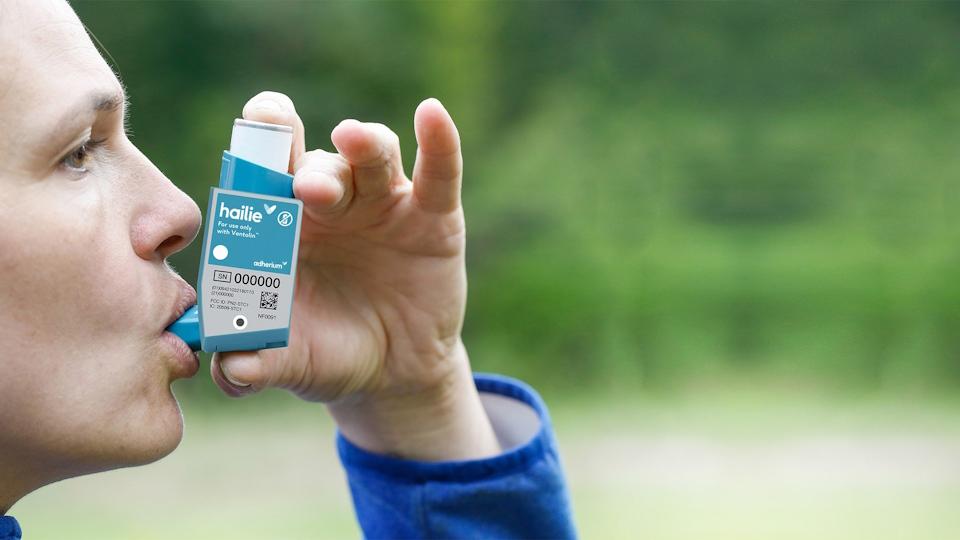Resourceful or risky? The UK’s controversial COVID-19 vaccine strategy

As COVID-19 vaccines are hastily deployed in the UK for priority groups, a debate rages over the government’s controversial strategy to delay time between vaccine doses.
When the UK announced the approval of the Pfizer-BioNTech and Oxford-AstraZeneca COVID-19 vaccines, it marked an exciting moment for the nation.
After months of turbulent lockdown measures, the dawn of approved vaccinations signalled hope that COVID-19 could finally be under control.
Sadly, the chaos is continuing as the UK grapples with the emergence of a new variant of SARS-CoV-2, estimated to be up to 70% more transmissible than the previous form of the virus.
As cases surge, the UK’s decision to delay second doses of the vaccine beyond the 3-4 weeks tested and approved during Phase III clinical trials is causing widespread concern. Many believe the strategy is too risky - prioritising political expediency over science and using the British public as laboratory subjects during an already severe crisis.
The advice, which first came from the UK’s Joint Committee on Vaccination and Immunisation (JCVI), stated a maximum interval of 12 weeks should take place between the first and second doses of both Pfizer and AstraZeneca’s vaccines.
JCVI said this is likely to have a greater public health impact in the short term and reduce the number of preventable deaths from COVID-19.
“The rate of vaccine delivery in the UK is currently limited by vaccine supply rather than by workforce capacity,” said the committee. “An extended interval between vaccine doses together with initial prioritisation of the first vaccine dose would increase the flow of vaccine supply in the short term. This will allow for more first doses to be delivered to more people earlier.”
The advice has been endorsed by the UK’s four chief medical officers but has been met with backlash from the medical community. Many healthcare workers have aired grievances on Twitter protesting the changes.
https://twitter.com/farrell_katrina/status/1344610377565405184
The British Medical Association (BMA) also blasted the decision as “unreasonable and totally unfair”.
"The Government must see that it’s only right that existing bookings for the oldest and most vulnerable members of our society are honoured, and it must also as soon as possible publish a scientifically-validated justification for its new approach,” said the BMA.
“As doctors, we believe this can and should be done even as practices and the wider NHS step up the COVID-19 vaccination programme to deliver initial doses of vaccination to other vulnerable people, including frontline healthcare professionals – many of whom still have not even received their first vaccination.”
"Erosion of public trust"
The NHS Confederation, which represents leaders across the organisation, told pharmaphorum the government needed to be very clear in its communications with the public about exactly what they are being asked to do and why.
“We have committed time and time again to making decisions based on data and science. Until vaccine manufacturers have data and science supporting a change, we continue to strongly recommend that health care providers follow the FDA-authorised dosing schedule for each COVID-19 vaccine"
“Protecting frontline staff from infection is vital to help them care for patients with COVID, as well as delivering the vaccination programme,” said NHS Confederation director Layla McCay. “However, there has been concern about changes to the vaccination schedule, which were announced at short notice and led to confusion and anxiety for patients and could lead to an erosion of public trust in healthcare providers. As always, NHS teams will pull out all the stops to respond to changing guidance, but the government must do more to explain the rationale for this change.”
Internationally, the decision has been met with scepticism. The FDA issued a statement regarding dosing schedules on 4 January 2021. “We know that some of these discussions about changing the dosing schedule or dose are based on a belief that changing the dose or dosing schedule can help get more vaccines to the public faster. However, making such changes that are not supported by adequate scientific evidence may ultimately be counterproductive to public health.
“We have committed time and time again to making decisions based on data and science. Until vaccine manufacturers have data and science supporting a change, we continue to strongly recommend that health care providers follow the FDA-authorised dosing schedule for each COVID-19 vaccine.”
In a joint statement Pfizer and BioNTech warned there was no data to demonstrate that protection after the first dose is sustained after 21 days. “The safety and efficacy of the vaccine has not been evaluated on different dosing schedules as the majority of trial participants received the second dose within the window specified in the study design,” said the companies.
Industry support
The Oxford-AstraZeneca vaccine trial did include different spacing between doses and showed that longer gaps (two to three months) yielded a greater immune response. The combined trial results published in the Lancet showed that vaccine efficacy 14 days after a second dose was higher in the group that had more than six weeks between the two doses (65.4%) than in the group that had less than six weeks between doses (53.4%).
Andrew Pollard, head of the Oxford Vaccine Group and chief trial investigator for the vaccine told the BMJ that extending the gap between doses made sense.
“Generally, a longer gap between vaccine doses leads to a better immune response, with the second dose causing a better boost. (With the HPV vaccine for girls, for example, the gap is a year and gives better responses than a one-month gap.) From the Oxford vaccine trials, there is 70% protection after the first dose up to the second dose, and the immune response was about three times greater after the second dose when the second dose was delayed, comparing second dose after four weeks versus second dose after two-three months.”
Akiko Iwasaki, professor of immunobiology at Yale Medical school also tweeted support for the changes, stating the new SARS-CoV-2 variant as the deciding factor.
https://twitter.com/VirusesImmunity/status/1345086697365712904
“I am still a proponent of two-dose vaccine but given the urgency, we can delay the second dose until more vaccines become available. I know many others have been saying this all along, but it was the B.1.1.7 variant transmission rate that did it for me,” said Iwasaki.
David Grainger, chief scientific advisor at life sciences investment firm Medicxi, also expressed confidence in the strategy, referring to modelling by the University of Toronto that predicts increasing the number of people protected, by limiting individuals to a single dose, reduces severe COVID events (ICU stays and death) by between 30-40% over a six-month period. This could amount to over 20,000 lives saved.
“The vaccine only must be 50% effective in two people to reduce the overall risk of infection that is achieved with 95% protection in one person,” said Grainger. “If I protect 10,000 people out of a population of 20,000 with 1% risk of infection at 95% efficacy, I get five cases from the protected subgroup and 95 cases in the unprotected subgroup for a total of 100 infections; if I protect all 20,000 people with 50% efficacy, again I get 100 infections. The existing data strongly suggests that a single dose will deliver at least 50% protection for at least a few months.”
He added that during the pandemic, decisions often needed to be made in the absence of proper data. “It teaches us that we cannot just ‘follow the science’ because that pathway is way too conservative (at least if that means only doing things for which there is clear, direct evidence).
“This is why we should have scientific advisors, but not rely on scientists to make decisions. It is why scientists rarely make good investors or businessmen – too many decisions need to be made in the absence of much information.”












